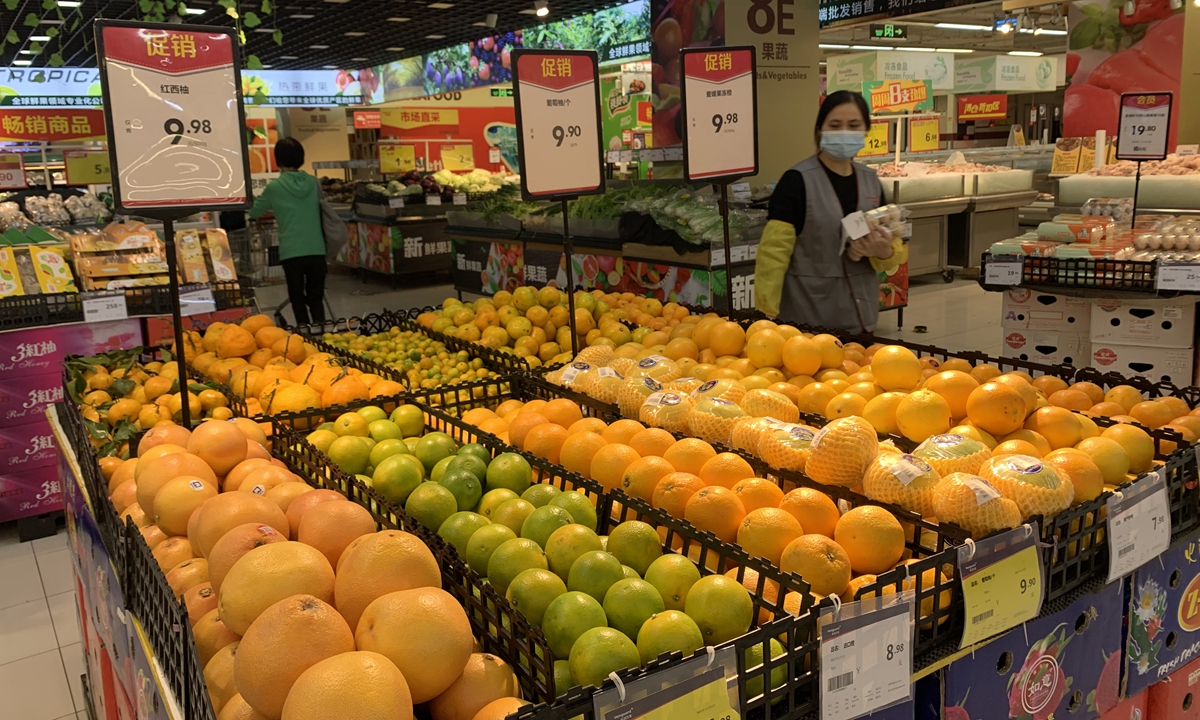China allows imports of more frozen fruits from Central, Eastern Europe: Chinese customs

A stall full of fruit in a supermarket in Shanghai on November 3. Photo: Qi Xijia/GT
China has granted import permits for more frozen fruits from Central and Eastern European countries, in an effort to promote export of more high-quality agricultural products from the region and expand the results of mutually beneficial cooperation, read a statement on the official website of China's Ningbo Customs District.
Lithuania, which has claimed that it quit a cooperation mechanism between China and Central and Eastern European countries in May, is unlikely to benefit from the expanded cooperation.
The new rule, which was first released on the official website of Chinese customs on November 22, came just one day after China decided to downgrade its diplomatic relations with Lithuania to the level of chargé d'affaires. The rare decision was a solemn protest against the Baltic state's collusion with the secessionist authority on the island of Taiwan and blatant violation of the one-China principle and international rules.
In May, Lithuania claimed that it was quitting the "17+1" cooperation mechanism, a platform between China and Central and Eastern European Countries (CEECs).
Lithuania represents only a tiny fraction of China's trade with Central and Eastern European countries. According to China's Ministry of Commerce, China's trade with Lithuania was merely $1.35 billion in 2019.
The Baltic country also relies heavily on agriculture and agricultural product exports.
The Global Times found that on the website of China-CEEC Customs Information Center, Lithuania was not included in a list that counted China's trade with Central and Eastern European countries starting from July.
Previously, only five types of frozen fruits, including bilberries and strawberries, from six Central and Eastern European countries, including Poland and Latvia, were allowed to be exported to China, according to the statement.
The new rule will enable frozen fruits that comply with certain standards from all Central and Eastern European countries to enter China starting from February 1, 2022.
Frozen fruits are an agricultural specialty in Central and Eastern European countries. In 2019, the export value of frozen fruits from the region was $1.194 billion, with only $28 million sent to China. That accounted for 2.34 percent of these nations' global exports and 8.02 percent of China's total global imports of such products, indicating great potential for cooperation.
Global Times

